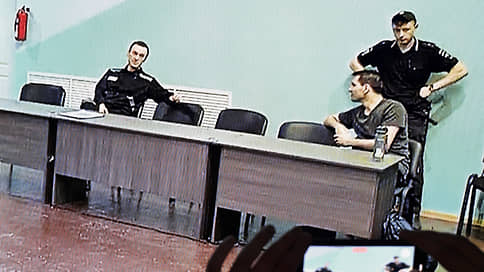Moscow City Court sentenced Navalny to 19 years in special regime
[ad_1]

The Moscow City Court at an off-site meeting in correctional colony No. 6 (IK-6) in the Vladimir Region sentenced opposition leader Alexei Navalny to 19 years in prison, which is more than twice the term he is serving in the case of fraud and insulting the court. The sentence is also tougher in terms of the conditions for serving the sentence: IK-6 belongs to a strict regime colony, and Alexei Navalny must spend a new term in a special regime colony. The lawyer believes that the new verdict makes it more likely that Western authorities could try to trade Mr. Navalny from Russia.
Oppositionist Alexei Navalny (included in the list of extremists and terrorists) was sentenced to 19 years in a special regime colony (intended for those sentenced to life imprisonment or the death penalty, as well as especially dangerous recidivists and violators of the regime). The court found him guilty of incitement to extremism, the creation of an NGO that infringes on the rights of citizens, the financing of extremism, the creation of an extremist community, the involvement of minors in dangerous actions and the rehabilitation of Nazism (a total of six articles of the Criminal Code of the Russian Federation).
The process took place completely behind closed doors on the territory of IK-6 in the village of Melehovo, Vladimir Region, where Alexei Navalny is serving a sentence in previous cases of fraud and contempt of court (in March 2022, the Lefortovo Court of Moscow sentenced him to nine years in prison, of which He has already served two and a half years. Journalists were allowed into a separate broadcasting room only for the announcement of the operative part of the verdict. The day before, Alexei Navalny, through his Telegram channel, thanked his comrades-in-arms for their support and urged them not to let themselves be intimidated. However, at the announcement of the verdict, the politician only managed to say “Let’s hug!” Before the broadcast was turned off.
The former technical director of the Navalny Live YouTube channel was also sentenced to eight years in a penal colony. Daniel Cold — he was found guilty of extremist activity and its financing.
Since the trial was closed, the specific content of the charges brought against Mr. Navalny is unknown.
They can be assumed based on publications in Telegram channels, which are conducted on behalf of the publicist Vladimir Kara-Murza (included in the register of foreign agents, convicted in the case of treason and fakes about the army) and another oppositionist Ilya Yashin (included in the register of foreign agents, convicted on article about discrediting the army) – both spoke at the trial as witnesses for the defense.
As follows from the entries in the channel of Mr. Kara-Murza, according to investigators, Navalny’s participation in the elections of the mayor of Moscow in 2013 and the presidential elections in 2018 (the oppositionist was not registered on them, but managed to start preparing for them, including fundraising) was only an external cover for his underground destructive activities, and public criticism of the authorities was a manifestation of extremism. And in Ilya Yashin’s Telegram channel, it is reported that Alexei Navalny, among other things, clarified with him how common it is to raise funds for the presidential election before the official start of the election campaign. According to the politician’s retelling, it follows from the indictment that Navalny participated in the elections with an extremist motive of inciting hatred for the government and with the aim of overthrowing it.
Lawyer Robert Zinoviev says that he has never encountered a construct when participation in elections was qualified as an attempt to seize power.
Apparently, the prosecution had to show imagination in order to build such a structure. “Unfortunately, due to the fact that the process itself was closed, we are deprived of the opportunity to assess the level of argumentation,” he adds.
But lawyer Dmitry Agranovsky is not surprised by this interpretation: apparently, he argues, the investigation considered the activities of the organization as a whole, and not just participation in the elections. Destructive forces may well come to power in a legal way, and history knows many examples of this, the lawyer recalls. And here it is very difficult to draw a line: the same actions, depending on the context, can be interpreted as normal, or they can be interpreted as criminal. The same fine line lies between entrepreneurial activity and fraud, Mr. Agranovsky draws a parallel. In any case, he adds, it is not very clear why this process was closed from the public.
According to Agranovsky, the ideal way out of this situation would be to exchange Alexei Navalny’s Russia for someone like WikiLeaks founder Julian Assange or Serbian general Ratko Mladic.
Usually the state exchanges its citizens for strangers, but more complex structures are possible, the expert is convinced. In 2021, presidential spokesman Dmitry Peskov commented that the extradition of Alexei Navalny to the US authorities could only happen if it turned out that the oppositionist had American citizenship and worked for the special services.
The European Union spoke on Friday statementin which it strongly condemns the decision in the case of Russian opposition politician Alexei Navalny, considering that the sentence was handed down “for actions constituting legitimate political and anti-corruption activities.”
[ad_2]
Source link








